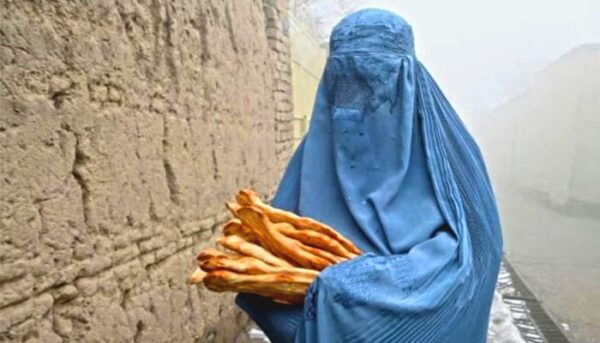Afghanistan is in the grip of the humanitarian disaster, which deteriorated by the Taliban takeover in August – when Western countries freeze international assistance and access to assets held abroad.
In the early hours every morning, Muhajira rushed in frozen temperatures to a simple bakeries in the Afghan capital to wait for warm naan bread to be shared.
On a few days, it was all his family, and the others who had joined the queue, would eat for that day.
“If I don’t bring bread from here, we will go to sleep hungry,” said the mother of two Muhajira Amanal to AFP on Tuesday.
“I even thought of selling my daughter, but I retreated and rely on God alone.”
Afghanistan is in the grip of the humanitarian disaster, which deteriorated by the Taliban takeover in August – when Western countries freeze international assistance and access to assets held abroad.
The work has dried up and many government workers have not been paid for months in this country, which are almost completely dependent on foreign donations under the previous US-backed government.
The United Nations has warned that half the countries are threatened with lack of food.
The distribution of bread launched on Saturday was part of the save of Afghanistan from the hunger campaign held by the Kabul University Professor.
At least 75 families in seven capital districts, currently covered in snow, will receive a daily naan allotment for a month.
In the queue, Nouriya stood beside the other five women, all in the blue burqa that the Taliban encouraged women in the country to use.
After the death of her husband he had a handout from a friend, but it was over.
“We eat rice or soup with carrots and radishes … and we put pieces of bread inside it instead of meat,” said Nouriya, a mother of five years.
While men and women waiting for their bread, playing children, some wearing ragged shoes too big for them.
As the last person who left the bakery, the owner of Makram El-Din said: “People lose their jobs, and they no longer have income. We used to use four flour sacks a day, now we only use one and a half.”




